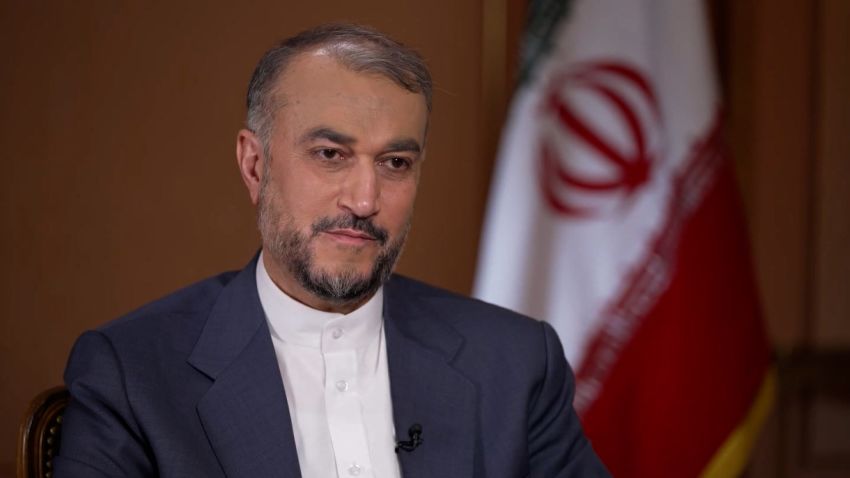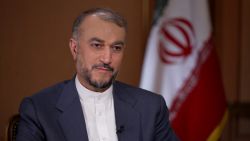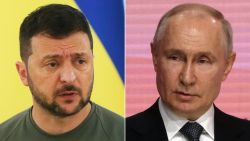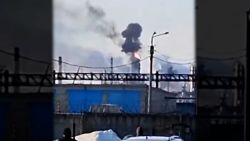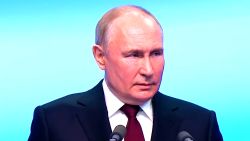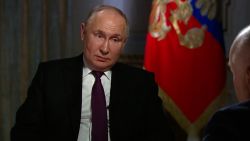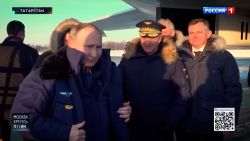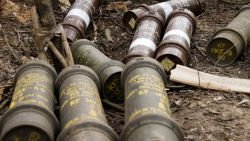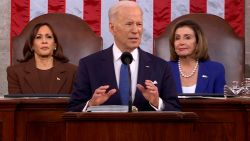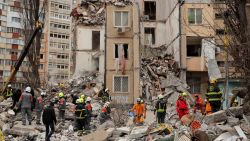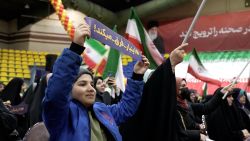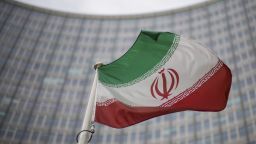Editor’s Note: David A. Andelman, a contributor to CNN, twice winner of the Deadline Club Award, is a chevalier of the French Legion of Honor and author of “A Red Line in the Sand: Diplomacy, Strategy, and the History of Wars That Might Still Happen.” He blogs at Andelman Unleashed and formerly was a correspondent for The New York Times and CBS News in Europe and Asia. The views expressed in this commentary belong solely to the author. View more opinion on CNN.
Russia is threatening to throw serious sand in the gears of the Iran nuclear talks that had seemed poised to come to a successful conclusion this week. Russian President Vladimir Putin and his negotiators are now talking about walking from any agreement unless the West agrees it can be exempted from any restrictions on business dealings with Iran.

The West and Iran must stare Putin down and prepare to implement the pact forthwith even without Russia. This is a tailor-made chance for the world to demonstrate graphically just how utterly irrelevant Putin’s toxic ambitions have rendered Russia – by removing him and his country from the community of civilized nations.
The US must also make it attractive for Iran to sign this agreement. Indeed, there are some indications Tehran lawmakers already recognize – playing to their own self-interests – that it may be necessary to throw their longtime ally, Russia, overboard to get the desperately needed sanctions relief that would accompany a signed nuclear agreement. These actions should most definitely be encouraged by the US and the other signatories to the agreement – the United Kingdom, France, Germany, China and the European Union.
Russia might think it still holds the trump card buried in the mechanics of the deal. Under the agreement known as the Joint Comprehensive Plan of Action (JCPOA), Russia has agreed to take excess enriched uranium from Iran and help convert the Fordow nuclear plant to civilian use. Today, Fordow’s centrifuges continue to produce enriched uranium. Russia, as a close and longtime friend of Iran, had agreed to continue its role in supervising the facility. But there is no reason France, Britain, the US or China couldn’t provide the same service.
China is also especially motivated to move toward a successful conclusion of the pact after 11 months of negotiations. While it has continued to purchase Iranian petroleum products reportedly under the radar, it is most anxious to see full two-way trade resume should sanctions be lifted.
Moreover, even the weather may be working against Putin. Russia has threatened to turn off its gas pipeline to Europe if an oil embargo is instituted as retaliation for its invasion of Ukraine. On Tuesday, US President Joe Biden did exactly that – and ban Russian oil, natural gas and coal imports to America.
Within weeks, however, temperatures in western Europe will have warmed to the extent that Russian gas will be less critical to heat homes in Germany and elsewhere. Indeed, by mid-March, daytime temperatures in Frankfurt will be passing 60 degrees.
Iranian and American LNG (liquefied natural gas) will help fill the gap in Europe. Moreover, Germany does have pipeline links to Norway, the Netherlands, Britain and Denmark for North Sea products. While southern Europe can get gas from Azerbaijan via the TANAP (Trans-Anatolian Natural Gas Pipeline) through Turkey.
Russia’s Deputy Prime Minister Alexander Novak has also substantially, if inadvertently, undercut his nation’s negotiating position at the Vienna JCPOA talks. Novak warned on Russian television that world oil prices could triple to $300 a barrel if an oil embargo is imposed. That would only be an added inducement for Iran to sign the JCPOA even more quickly. Iran would be in a position to reap enormous benefits in the form of surging oil prices if it could return with full force to the world oil markets in a timely fashion.
In the end, of course, it is Iran that holds the trump card to a restoration of the nuclear pact. In the four years since former President Donald Trump pulled the United States out of the agreement, Iran has moved toward building a stockpile of enriched uranium that would allow it to build a nuclear weapon. Indeed, in January, the Arms Control Association observed, “We are reaching a point where Iran’s nuclear escalation will have eliminated the substance of the JCPOA.”
But recently, senior Iranian officials have signaled they recognized the advantage – no more timely than today – of returning to the pact and receiving sanctions relief. Ali Shamkhani, secretary of Iran’s Supreme National Security Council, tweeted on Monday, “Our interactions (on JCPOA) are solely driven by our people’s interests. Thus, we’re assessing new elements that bear on the negotiations and will accordingly seek creative ways to expedite a solution.”
This is very much the time to act. Rapid renewal of the JCPOA – with or without a Russian signature – represents an opportunity to strike a major blow at everything Putin stands for, even the foundations of his power and influence. Instead of indispensable, Russia risks becoming a pariah nation – a toxic actor on the world stage.

